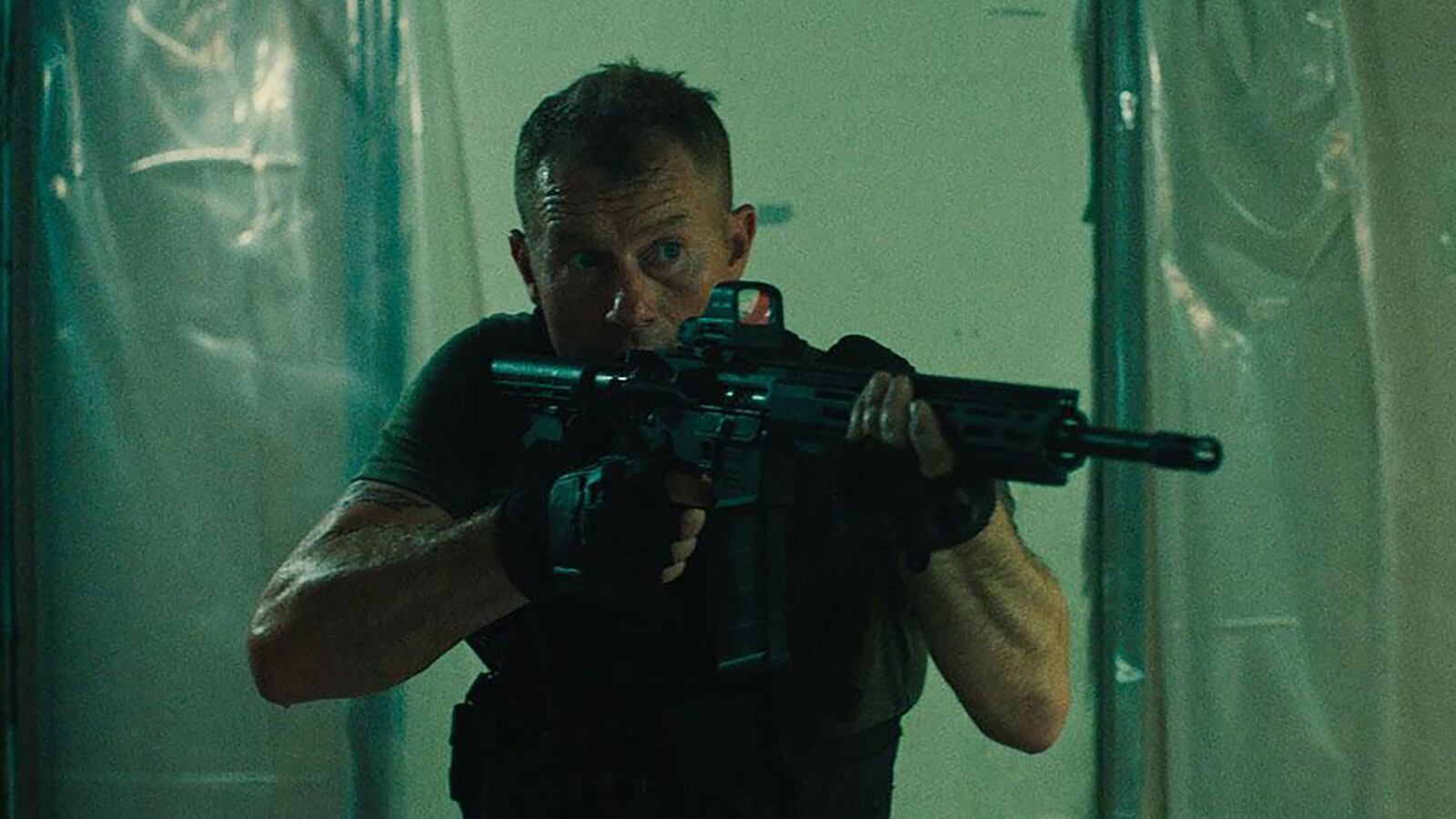VENICE, Italy—Fentanyl addictions have taken hold of America. According to the U.S. State Department, some 70,000 people died from fentanyl related problems in 2023. The drug is difficult to trace at the border due to its chemical makeup, and it's considerably more potent than heroin. King Ivory, written and directed by John Swab, takes its title from one of fentanyls street names. The film attempts to tackle the fentanyl crisis that's rocked the nation—a noble cause indeed. Unfortunately the film is both overlong and underdeveloped.
There are three converging plot threads in King Ivory, which just premiered at the Venice Film Festival. One involves West (James Badge Dale), a cop tasked with defending Oklahoma from gun crime, alongside his wife and two kids. Then there's Smiley (Ben Foster), an inmate at a maximum security facility who earns his freedom via shocking acts. Finally, drug cartel leader Ramón Garza (Michael Mando) traffics people from Mexico to Oklahoma, but he becomes the target of a police hunt when one of his routine trips goes horribly wrong.
The most intriguing plot involves Garza and the teenager he trafficked from Mexico. The boy has aspirations of being an accountant (his mother hopes he’ll be a doctor) and his parents risk everything to get him there, offering the deed to their farm in order to pay for him to cross the border. But when he gets there, he’s immediately thrown into the drug world, forced to drive from location to location selling fentanyl. Annoyingly, this thread is barely given attention.
What gets the most focus is West and his family. His son Jack (Jasper Jones) is pushing back against his parents. He’s performing poorly at school, and to his parents’ horror, has begun taking recreational drugs. The weakest part of King Ivory, the scenes with Jack, feel like they’re taken out of an after-school special. It’s a generic family drama mired with archetypes of parents and sons.
As West, however, James Badge Dale is formidable. His physical prowess combines with his mental fortitude for a veneer of toughness. Yet Dale allows a tender side to slip through. He’s not just a cop, but a father, and he’s a very different person when at home versus at work. King Ivory balances a lot of different characters in its 130 minutes, but it’s West who gives us our deepest understanding of how the fentanyl crisis has crushed so many communities.
West excluded, the characters in King Ivory are rough sketches rather than characters resembling people. People are reduced to their identities: Those involved in the drug trade are ruthless. The one old white man is inevitably racist, ranting about woke, PC culture.” West's wife is reduced to the nagging spouse role, constantly complaining about their son (she has very good reason to)—which is a shame because Sam Quortin does the most she can with the part. West's son Jake is one of the most insufferable, mind-numbing rebellious teenagers you’ve ever seen.
Even the bigger names attached to the film aren't able to do much with their roles. Ben Foster is intriguing as Sunny, a vicious member of the drug trade, but his character is given little to do. Melissa Leo does some delightful scenery chewing as Smiley’s mother, but her character is woefully underwritten. It's really hard to care about characters in a film when the script doesn't.
King Ivory is mired in expository dialogue. So many conversations circle around warring drug cartels, but you never get a sense for anyone behind the cartels. It's like hearing your partner telling you the intricacies of their job duties: It’s interesting in theory, but these scenes feel disconnected from the emotional core of the film.
Speaking of, King Ivory is most damning when it explores how fentanyl impacts people. It nails the addictive feeling drug creates, as well as how it impacts people’s lives—once you take it, it creates such a potent high that there’s a desperation to feel that remarkable rush again. This is a bleak, unsparing movie that's frank about the impact drug cartels have on communities, and how fentanyl in particular can tear families to shreds. Unfortunately, King Ivory invests most of its efforts in a police story we’ve seen too many times before, and with a lot more gusto than what’s on display here. This is a film that spends a lot of time meandering in overly-familiar beats, leaving its best stuff obscured under flurries of gunfire.









